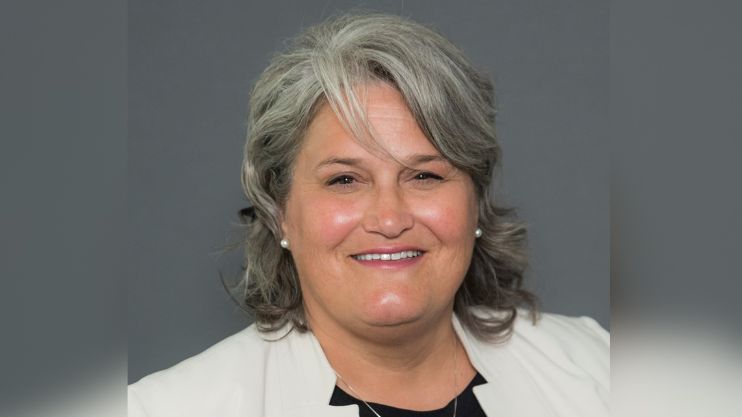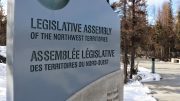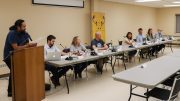The Chief Electoral Officer (CEO) for the Northwest Territories says her office has received some national attention as well as some scrutiny as her office works towards making the Absentee Ballot available online in this fall’s territorial election.
Nicole Latour has appeared on at least two national news programs recently to discuss amendments to the NWT’s Elections and Plebiscites Act that will allow eligible NWT voters to vote online for the Territorial General Election (TGE) this fall.
The interest lies in the NWT being the first jurisdiction in Canada to make online voting available to their electors in a provincial or territorial electoral event.
In addressing the scrutiny, which Latour describes “as very minimal”, she says that, “as a CEO there are only so many tools available when considering who the Absentee Poll is intended to serve: specifically students who are away from home, our mine workers, military personnel and travellers.
“The previous method of delivering the Absentee Poll through the mail was setting electors up for disappointment as electors using the mail-in ballots would not have their ballots returned in time to be counted,” Latour said.
This awareness prompted Recommendation 40, on leveraging technology as a means to serve the electorate, in her 2015 CEO Report on the TGE to the Legislative Assembly.
That recommendation was agreeable to MLAs and amendments to the Elections and Plebiscites Act which came into force in November 2018.
They provide for the online option being made available as an alternate means when using the Absentee Poll.
The application period for an absentee ballot mail-in or online voting is to begin on August 19 and run until Sept. 21 at 2:00 pm.
An elector who has been issued an online ballot may use it until the close of the ordinary poll which is at 8:00 pm October 1st.
Latour says the majority of feedback on online voting has been positive but she feels it is important to remind people that the Absentee Online voting platform is an option, not the entire election but a single poll.
“Any eligible, registered elector who may wish to engage with it may do so – if not, then we’ll see them at the polling station,” she says. “The comfort level of using the online platform is similar to online banking, or purchasing, or vehicle registration in that if you don’t feel comfortable using it you may choose to visit the bricks and mortar establishment.”
Online voting has in fact been used in hundreds of Indigenous, municipal, union and university elections in Canada. Prince Edward Island used the system in 2016 for a plebiscite.
Latour believes concerns about the security and integrity of the online vote for an electorate the size of the NWT is largely unfounded.
She says the risk of a breach is no greater than for folks who bank online.
Latour says there is a double authentication application process, a number of shared secrets and finally voters will be given a pin number.
Upon casting their ballot voters receive a receipt code.
“Once you vote online, you get a receipt code and it lets you know that your ballot is counted and is in the (ballot) box. I don’t know what your receipt code is. Nobody knows the receipt code other than the voter,” she said.
Latour points out that if people don’t like using a bank machine, or online banking they can simply go inside the bank and do their business in person.
“If you don’t like the idea of online voting, then we’ll see you at the polls,” Latour said.
Latour agrees that voter turnout during the last election was relatively low, particularly among young people.
Fully 80 percent of 18-35 year old electors did not vote.
She says however that increasing voter turnout is not necessarily the primary mandate of her office but says if it increases due to online voting, particularly among young people, then it’s a good thing.
“I get held accountable for low voter turnout but as an agency we essentially are an event planner. We’re here to administer the electoral event and protect the integrity of the process and the secrecy of the ballot. Somewhat like a wedding planner, we put out the tables and chairs but it’s not our wedding. It’s really up to the candidates to bring the guests, the guests being the voters”
Latour said she thinks that apart from the commonly referenced voter apathy as a reason for low turnout it may be attributed to the fact we have consensus government and not a party system. She says with a party system, voters can simply watch party platforms on social media and decide that a party’s values most align with their own and vote accordingly.
Latour says with respect to comments about fear of Russia, China or any other country or bad actor trying to hack and influence our election.
“We need to be realistic about the size of the electorate in the NWT; it’s small and therefore we face less risk. And on comments about foreign influence. We’re not a party system, so you can’t buy a party. As a consensus style government with candidates that run as independents, bearing in mind last election we had 60 candidates, a foreign actor would have to influence all candidates or trying an pick the 19 that they view as winners to be able to obtain ‘influence’ in our government. That’s quite a challenge”
Latour says that many electors have expressed excitement to her over the prospect of being able to use a voting mechanism that better fits their work-life balance.
“If electors overwhelmingly engage with the platform because of its convenience then that is their prerogative and increased participation is a definite win-win.”









